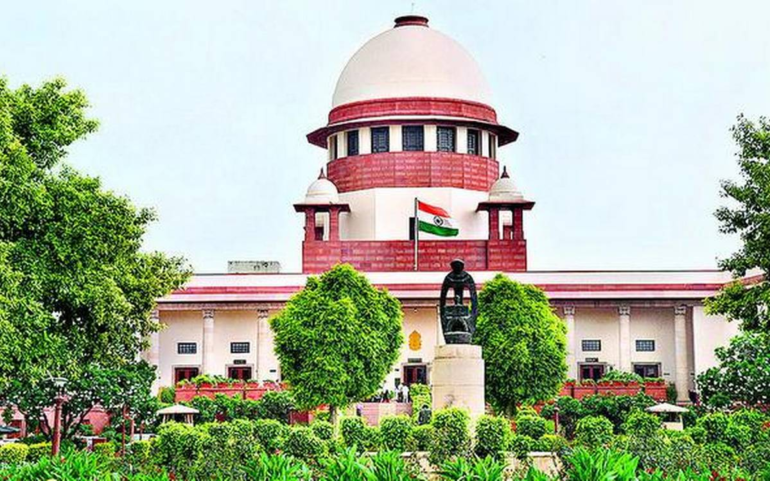The Supreme Court on Wednesday commuted the death sentence of a Ballari man convicted of murdering his wife, sister-in-law, and three children in 2017, to life imprisonment without remission. The court said that while opinions on his potential for reformation were divided, the one favouring the convict must prevail.
A bench comprising Justices Vikram Nath, Sanjay Karol, and Sandeep Mehta upheld the conviction of Byluru Thippaiah alias Byaluru Thippaiah alias Nayakara Thippaiah, who suspected his wife Pakkeeramma’s fidelity and went on to kill her, her sister Gangamma, and his children Pavithra, Nagraj alias Rajappa, and Basamma on February 25, 2017. “We affirm the findings of the courts below regarding the appellant-convict’s conviction for the barbaric and ruthless murders of his family members,” the bench said.
The court noted that there was no oral or documentary evidence indicating the convict’s innocence or suggesting involvement of a third party. Justice Karol, writing the 23-page judgment, stated, “Not a shred of evidence has been produced to posit the appellant-convict’s innocence.” The bench said it found no reason to differ from the concurrent findings of guilt by the lower courts, adhering to the Supreme Court’s cautionary approach in such matters.
Senior Advocate Gopal Sankaranarayanan appeared for the convict while Karnataka’s Additional Advocate General Avishkar Singhvi represented the state. The court noted that although the High Court had called for a conduct and behavioural report as per Manoj vs State of MP (2023), it failed to properly consider the findings recorded in those reports.
Citing multiple adverse life circumstances, including lack of parental care, learning difficulties, impulsive business decisions, substance dependence, and a troubled first marriage, the court acknowledged the convict’s mental health issues and his two suicide attempts during incarceration.
On the question of reformation, the bench observed that, given the split opinion, the benefit must go to the accused, just as the principle of favouring the interpretation that benefits the accused applies when there are two views on facts. “Considering all factors, the death penalty may not be appropriate,” the bench held.
The court concluded, “We are of the view that he should spend his life in prison attempting to atone for the crimes committed. Accordingly, the appeals are partly allowed; he is to be removed from death row but will remain imprisoned until his last breath, without remission.”


